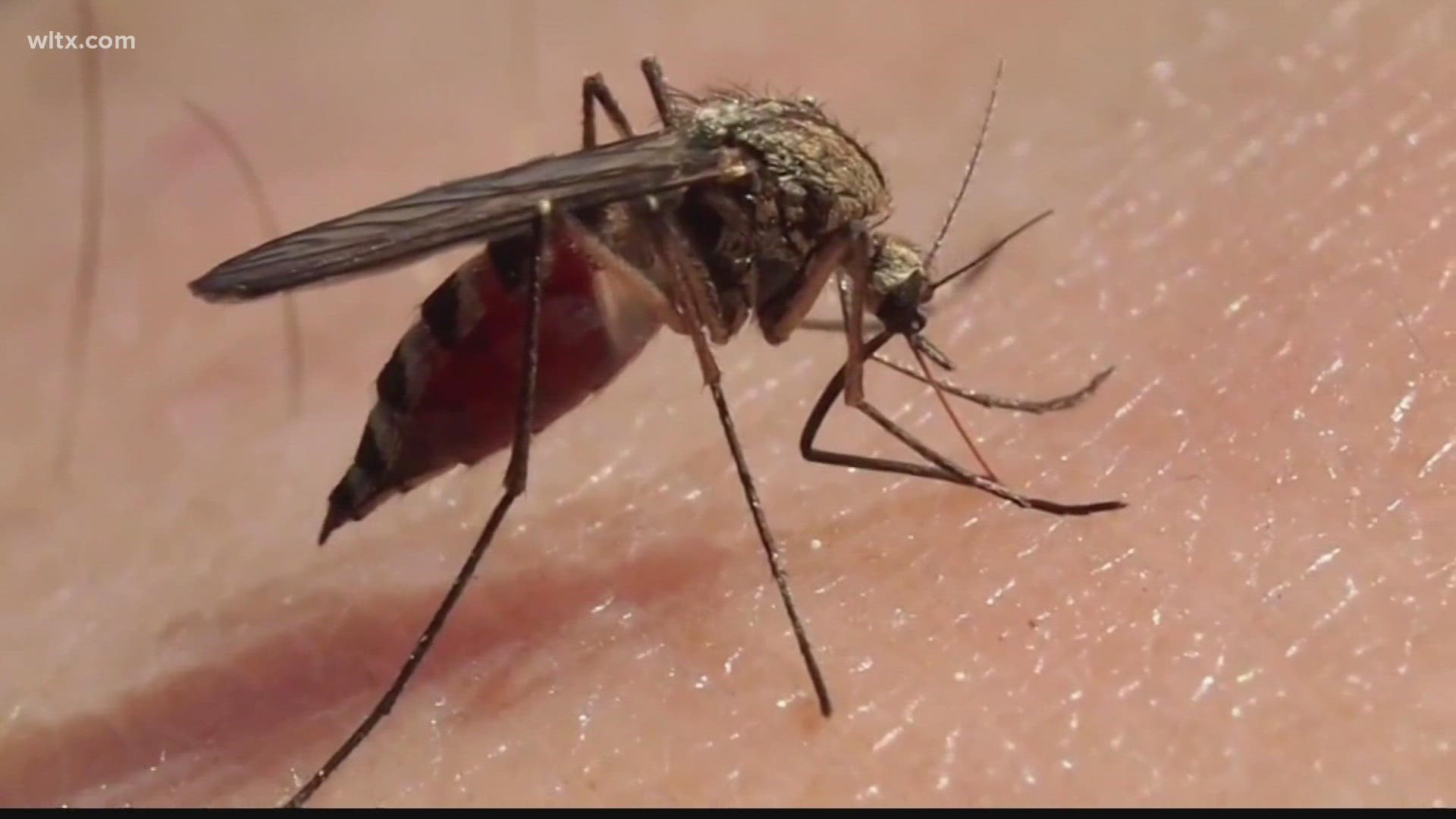COLUMBIA, S.C. — A person in the Midlands has died of the West Nile virus, state health officials confirmed Monday, the first West Nile death in the state this year.
The South Carolina Department of Health and Environmental Control did not say where the death took place, just stating that the death was in the Midlands region.
This comes a less than a week after DHEC announced there was an outbreak of West Nile in Richland County. They urged to people to project themselves from mosquitoes, the primary carrier of the illness.
The Centers for Disease Control and Prevention (CDC) says most people (eight out of 10) will not develop any symptoms of West Nile. However, about one in five people do develop symptoms that include headache, body aches, joint pains, vomiting, diarrhea, or rash. Most people with febrile illness due to West Nile virus recover completely, but fatigue and weakness can last for weeks or months.
"If you develop fever or other symptoms after being bitten by a mosquito, you should contact your health care provider immediately," said Dr. Linda Bell, South Carolina State Epidemiologist.
DHEC says in 2022 it has confirmed 11 human cases of West Nile virus. Nine of the 11 confirmed human cases are from the Midlands region; six of those cases are residents of Richland County
The City of Columbia confirmed a case of West Nile in a dead bird over the summer and began spraying for mosquitoes that carry the virus. The last round of spraying was in early August.
Here are some ways individuals can protect themselves from mosquitoes.
People are urged to protect themselves by the following methods:
- Using, according to the label instructions, EPA-registered insect repellents that contain DEET, Picaridin, IR3535, or oil of lemon eucalyptus
- Emptying and turning over outdoor containers holding water
- Making sure there are screens on rain barrels and using the water as soon as possible
- Changing the water in pet dishes, birdbaths, and plant containers at least once a week
- Properly maintaining swimming pools
- Cleaning clogged roof gutters
- Eliminating overgrown grass, weeds, and shrubbery
- Clearing drainage ditches of debris and weeds
- Packing tree holes with sand
- Keeping boats overturned, drained, or covered (covers should not collect water)
- Stocking ornamental ponds and water gardens with top-feeding minnows.

